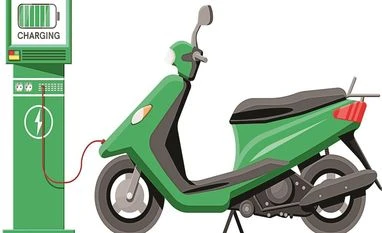Smaller players manufacturing electric two-wheelers (E2Ws) are unlikely to raise prices of their models initially in 2024 in order to ensure volumes do not drop.
The prices of E2Ws range from Rs 90,000 to Rs 1 lakh, the players being Lohia Auto, Godawari Electric, Emobi, etc.
As India’s E2W sector gears up to go past one million in 2024, manufacturers are likely to maintain price stability, underpinned by strategic independence from subsidies under Faster Adoption and Manufacturing of Electric (and Hybrid) Vehicles II (FAME II), localisation efforts, sustainability initiatives, and a focus on affordability.
Godawari Electric Motors, which entered the market this year, exemplifies this cautious approach. Speaking on this, Hyder Khan, chief executive officer (CEO), stated: “We have no intention of raising prices of our e-scooter. Our focus is on making sustainable mobility accessible to all.”
Similarly, Emobi, a Bengaluru-based startup, emphasises its independence from government subsidies.
Founder and CEO Bharath Rao said: “Our decision is rooted in our strategic independence from FAME II subsidies as our partnerships have ensured our EVs remain unaffected by subsidy issues.”
On the other hand, Shema Electric founder Yogesh Lath, another electric-vehicle manufacturer, said: “There is no plan to raise prices unless raw material or the costs of parts rise significantly. However, our new variants with upgraded features will have increased pricing.”
Joy e-bike, which focuses on localisation and production efficiency to control costs, stated: “The prices of our entire product line remain unchanged. Under our initiative to promote localisation, we are manufacturing key components, including the motor, battery, harness, etc. locally.”
The consensus among industry peers is a forecast of robust growth in demand, production, and sales of electric two-wheelers in India.
Lohia CEO Ayush Lohia summarised the collective stance.
“We understand the importance of affordability in driving EV adoption. We are keen on promoting it and remain dedicated to providing sustainable transportation without imposing a financial burden.”
EV players are bracing themselves for the impact of reduced government subsidies under FAME II. This could prompt price adjustments for some models; however, the overall consensus indicates no pricing hike in their structure.
Smaller players are also betting on maintaining current prices to attract new customers and establish a strong market foothold as the EV momentum is gaining traction. By prioritising affordability and volume growth, they hope to navigate the evolving EV landscape in India and carve out a sustainable niche for themselves.
The number of E2Ws sold in India in 2023 was 728,054. They contributed 62 per cent of EV sales in FY23.
Godawari has a sales projection of more than 30,000 in 2024. Amo’s projection for FY24 is to retail up to 50,000.
Joy e-bike sold 2,563 units, high-speed and low-speed, in November.
Lohia and Shema did not give their monthly sales.
Unlock 30+ premium stories daily hand-picked by our editors, across devices on browser and app.
Pick your 5 favourite companies, get a daily email with all news updates on them.
Full access to our intuitive epaper - clip, save, share articles from any device; newspaper archives from 2006.
Preferential invites to Business Standard events.
Curated newsletters on markets, personal finance, policy & politics, start-ups, technology, and more.
)